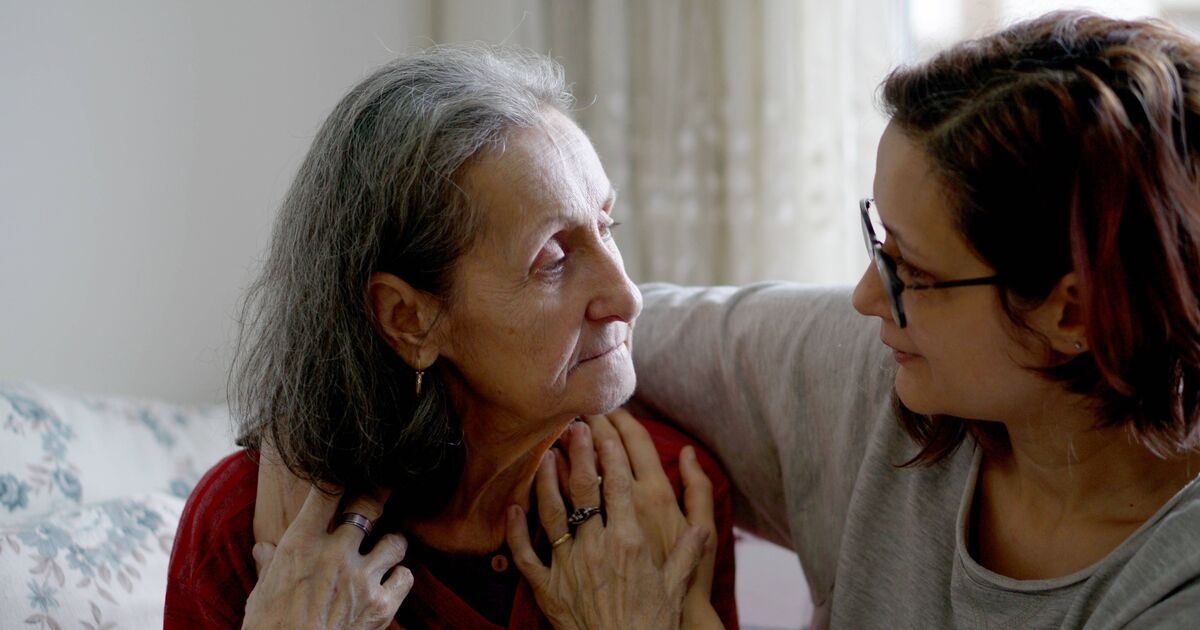Psychologist explains 'mixed dementia' and common myth


A psychologist has illuminated the true meaning of 'mixed dementia' while dispelling a common misconception. Dr Kelynn Lee, CEO of the Dementia Care Hub and a dedicated researcher in cognitive decline, took to TikTok to respond to a viewer's query.
The viewer had recently learned that their mother was diagnosed with mixed dementia. They mistakenly believed this meant doctors were unsure about the specific type of dementia, but Dr Lee insisted this wasn't the case.
In a September video, she said: "No. So, a mixed dementia is when a person has more than one type of dementia. Ok, so rather than just having Alzheimer’s disease, they will have Alzheimer’s disease plus vascular dementia, as an example.
"That’s probably the most typical one when we are talking about mixed dementias. So, no, it isn’t that they aren’t sure what it is, it’s the fact that it’s two types of dementia."
Dementia is a broad term that encompasses several conditions, including Alzheimer's disease, all of which involve a continuous decline in brain function. The NHS estimates that over 944,000 people in the UK are living with dementia, while the Alzheimer's Society suggests that one in every 10 people is affected by mixed dementia.
Mixed dementia, which involves a blend of different types, doesn't present with a specific set of symptoms. It's therefore crucial for those caring for people with mixed dementia to familiarise themselves with the symptoms of each type, although it's common to exhibit more signs of one type than others.
Official guidance at Alzheimer's Society adds: "Alzheimer’s disease with vascular dementia. This is the most common type of mixed dementia. It’s caused by a person developing Alzheimer’s disease and at the same time having diseased or damaged blood vessels supplying their brain.
"The two different types of disease combine to make symptoms worse than they would be on their own." At present, there is no cure for mixed dementia, but treatments are available to alleviate its symptoms, which may include confusion, forgetfulness, and speech difficulties, among others.
Anyone who suspects that they or a loved one may be exhibiting dementia symptoms should consult their GP.
Potential early indicators of dementiaThe signs of dementia will differ depending on the type. However, during the early stages, common symptoms may include:
- Mood changes
- Difficulty concentrating
- Finding it hard to carry out familiar daily tasks, such as getting confused over the correct change when shopping
- Memory loss
- Struggling to follow a conversation or find the right word
- Being confused about time and place
NHS guidance adds: "These symptoms are often mild and may get worse only very gradually. It's often termed 'mild cognitive impairment' (MCI) as the symptoms are not severe enough to be diagnosed as dementia.
"You might not notice these symptoms if you have them, and family and friends may not notice or take them seriously for some time. In some people, these symptoms will remain the same and not worsen. But some people with MCI will go on to develop dementia.
"Dementia is not a natural part of ageing. This is why it's important to talk to a GP sooner rather than later if you're worried about memory problems or other symptoms."
For more information, visit the NHS website.
Daily Express





